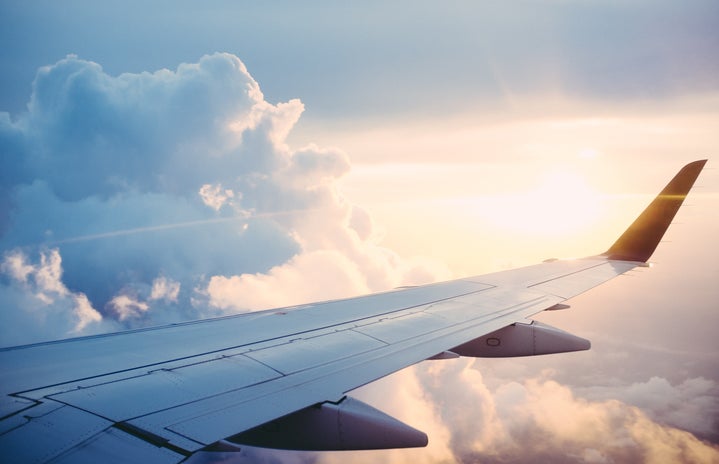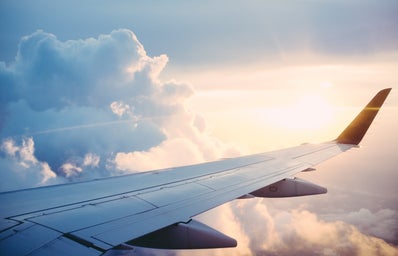President Trump announced on Wednesday that all travel from Europe to the U.S. will be suspended for the next 30 days in an effort to prevent further spread of the coronavirus. The travel restrictions begin this Friday, March 13 at 11:59 p.m. EST, and do not apply to the U.K. or Ireland, despite there being COVID-19 cases in both countries.
People on Twitter immediately voiced concern for college students who might be stuck traveling or studying abroad with no way to get home.
so everyone in my study abroad program is booking flights for friday because of Trump’s travel ban we dont even know if theyll let us in pic.twitter.com/IbtnE47XUQ
— ??????˖✧*:・゚✧ (@sxndravides) March 12, 2020
also this travel ban is really something….like it is VERY necessary but think about all the students stranded there because of study abroad/families separated because of this
— laura dern’s academy award (@missamericanas) March 12, 2020
What do the travel restrictions mean for college students abroad?
The Department of Homeland Security has clarified that the restrictions only apply to foreign nationals—not American citizens, their immediate family members, or legal permanent residents. While American college students will in fact be able to get home, this does not minimize the burden of having to scramble for a plane ticket or find the resources to relocate halfway through the semester.
“It’s been about 24 hours since I became aware of the travel ban and my program was canceled. What followed was nothing short of chaos,” says Olivia Zavitson, a junior at Rhodes College currently in Barcelona, Spain. “We were given a little over a week to leave Barcelona, and I was fortunate enough to get a flight quickly. However, the majority of people here had our program arrange their travel, which means that they essentially have no control of when they will leave. This has led to both students and parents going into a panic—frantically sending hand sanitizer and wipes via Amazon Prime and angrily calling the administration of our study abroad program (who have been working tirelessly all night to figure this mess out).” Zavitson tells Her Campus that she knows several people who, upon hearing the announcement, packed their bags and were on a plane by noon.
USA Today reports that George Washington University student, Haley Ohlund, spent about $1,500 to get from Copenhagen to Pittsburgh today, and that she saw airline prices jump thousands of dollars after Trump announced the travel notice.
4:30 AM @ El Prat Airport. Literally all American tourists and students in here fleeing Barcelona after Trumps travel ban ? pray for us pic.twitter.com/55MVUKkaTW
— 〽️ichael (@bjork52) March 12, 2020
What will happen to students returning to the U.S.?
In previous weeks as study abroad programs closed and moved online, many students were sent home and instructed to self-quarantine. NPR reports that travelers returning to the U.S. following the new travel restrictions will be directed to a limited number of airports for screening prior to entering the country. Those with symptoms of the coronavirus will have to seek immediate medical attention, and those without symptoms will need to self-quarantine for 14 days.
Her Campus will update this story with more information as it becomes available.


